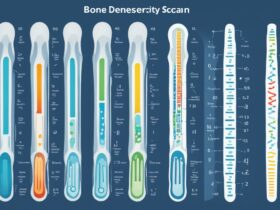The impact of our dietary choices on the environment has become a growing concern in recent years. One lifestyle choice that has gained popularity due to its potential positive impact is vegetarianism. By adopting a vegetarian lifestyle, individuals can significantly reduce their environmental footprint. This article explores the various environmental benefits of choosing a vegetarian diet, along with the detrimental effects of animal agriculture on our planet.
Environmental Benefits of a Vegetarian Lifestyle
A vegetarian lifestyle offers numerous environmental benefits, making it an attractive option for eco-conscious individuals.
2.1 Reduced Greenhouse Gas Emissions
One of the key advantages of choosing a vegetarian lifestyle is the significant reduction in greenhouse gas emissions. Livestock farming, especially beef production, is a major contributor to greenhouse gas emissions, primarily methane and nitrous oxide. By reducing or eliminating meat consumption, individuals can help combat climate change and global warming.
2.2 Conservation of Water Resources
Animal agriculture is a water-intensive industry. Producing meat requires large quantities of water for animal hydration, feed crops, and processing. By choosing a vegetarian lifestyle, individuals can conserve water resources, as plant-based diets generally require less water compared to meat-based diets.
2.3 Preservation of Biodiversity
Adopting a vegetarian lifestyle can contribute to the preservation of biodiversity. Animal agriculture is a leading cause of habitat destruction and species extinction. By reducing demand for animal products, we can help protect fragile ecosystems and the wildlife that depends on them.
Deforestation and Animal Agriculture
Animal agriculture is a significant driver of deforestation, especially in regions like the Amazon rainforest. The following points highlight the connection between animal agriculture and deforestation.
3.1 Clearing of Forests for Livestock Farming
To meet the ever-growing demand for meat, vast areas of forests are cleared to make way for livestock farming. This deforestation not only leads to the loss of valuable carbon sinks but also contributes to the release of carbon dioxide into the atmosphere, exacerbating climate change.
3.2 Impact on Wildlife Habitats
Deforestation for animal agriculture has a detrimental effect on wildlife habitats. Many species, including endangered ones, rely on forests for their survival. Clearing forests for livestock farming disrupts these habitats, leading to the displacement and endangerment of numerous animal species.
Water Pollution from Animal Agriculture
Animal agriculture is a significant source of water pollution, posing risks to both human health and aquatic ecosystems.
4.1 Runoff Contamination
The runoff from livestock farms, which contains manure, fertilizers, and other pollutants, often finds its way into rivers and streams, leading to water contamination. This pollution can harm aquatic life and contaminate drinking water sources.
4.2 Excessive Use of Antibiotics
Animal agriculture relies heavily on antibiotics to promote animal growth and prevent diseases in crowded and unsanitary conditions. The overuse of antibiotics in animal farming contributes to the development of antibiotic-resistant bacteria, posing a severe threat to human health.
Land Degradation and Soil Erosion
The intensive practices associated with animal agriculture can lead to land degradation and soil erosion.
5.1 Overgrazing and Soil Quality
Overgrazing by livestock can degrade land and reduce its productivity. Grazing animals can compact the soil, impairing its ability to retain water and nutrients. This degradation affects soil fertility and hampers the growth of plants, contributing to desertification.
5.2 Deforestation and Soil Erosion
Deforestation for livestock farming removes vegetation cover, leaving the soil exposed to erosion by wind and rain. Soil erosion strips away the topsoil, which is rich in nutrients, and reduces its ability to support plant growth.
Conclusion
Choosing a vegetarian lifestyle offers substantial environmental benefits, including reduced greenhouse gas emissions, water conservation, and preservation of biodiversity. Additionally, it helps combat deforestation, water pollution, and land degradation associated with animal agriculture. By making conscious choices about our dietary habits, we can contribute to a more sustainable and environmentally friendly future.
FAQs
Q1: Is it necessary to eliminate all animal products to have an environmental impact?
A1: While eliminating all animal products can have a significant environmental impact, even reducing meat consumption can make a difference. Every individual’s effort counts in reducing the environmental footprint.
Q2: Are there any health benefits associated with a vegetarian lifestyle?
A2: Yes, adopting a well-balanced vegetarian diet can provide numerous health benefits, including a reduced risk of heart disease, certain types of cancer, and obesity. However, it’s essential to ensure proper nutrition and a variety of plant-based foods.
Q3: Can a vegetarian lifestyle help address food insecurity?
A3: Yes, shifting towards a vegetarian lifestyle can free up resources like land and water, which can be utilized more efficiently to produce plant-based foods. This, in turn, can contribute to addressing global food insecurity.
Q4: Are there any challenges associated with adopting a vegetarian lifestyle?
A4: Like any dietary change, transitioning to a vegetarian lifestyle can pose challenges, especially in terms of meal planning and ensuring adequate nutrient intake. However, with proper knowledge and planning, these challenges can be overcome.
Q5: How can I make a positive environmental impact without going fully vegetarian?
A5: Even small changes can make a difference. You can start by incorporating more plant-based meals into your diet, participating in meatless Mondays, or opting for sustainable and ethically sourced animal products when you do consume them.









